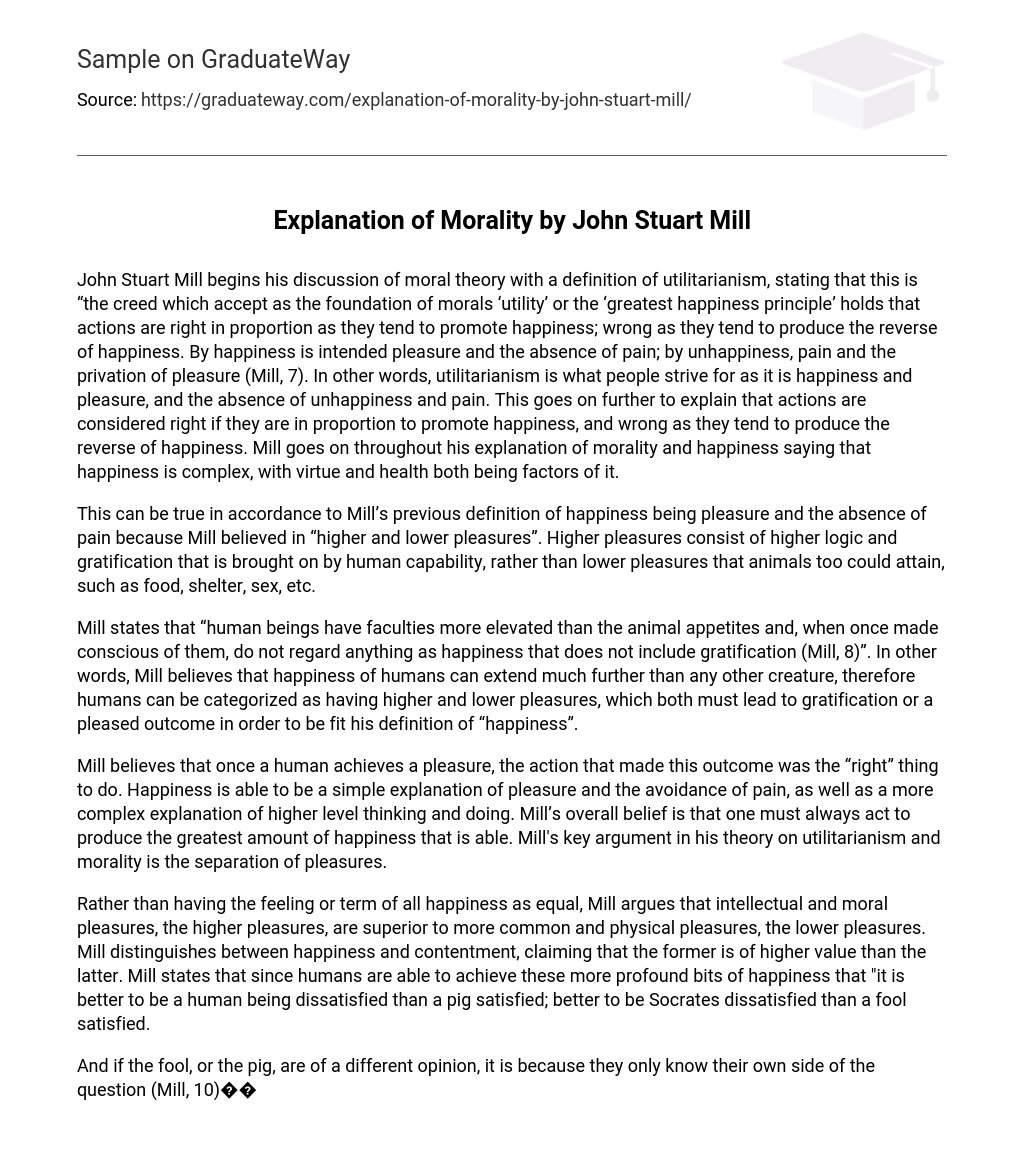John Stuart Mill begins his discussion of moral theory with a definition of utilitarianism, stating that this is “the creed which accept as the foundation of morals ‘utility’ or the ‘greatest happiness principle’ holds that actions are right in proportion as they tend to promote happiness; wrong as they tend to produce the reverse of happiness. By happiness is intended pleasure and the absence of pain; by unhappiness, pain and the privation of pleasure (Mill, 7). In other words, utilitarianism is what people strive for as it is happiness and pleasure, and the absence of unhappiness and pain. This goes on further to explain that actions are considered right if they are in proportion to promote happiness, and wrong as they tend to produce the reverse of happiness. Mill goes on throughout his explanation of morality and happiness saying that happiness is complex, with virtue and health both being factors of it.
This can be true in accordance to Mill’s previous definition of happiness being pleasure and the absence of pain because Mill believed in “higher and lower pleasures”. Higher pleasures consist of higher logic and gratification that is brought on by human capability, rather than lower pleasures that animals too could attain, such as food, shelter, sex, etc.
Mill states that “human beings have faculties more elevated than the animal appetites and, when once made conscious of them, do not regard anything as happiness that does not include gratification (Mill, 8)”. In other words, Mill believes that happiness of humans can extend much further than any other creature, therefore humans can be categorized as having higher and lower pleasures, which both must lead to gratification or a pleased outcome in order to be fit his definition of “happiness”.
Mill believes that once a human achieves a pleasure, the action that made this outcome was the “right” thing to do. Happiness is able to be a simple explanation of pleasure and the avoidance of pain, as well as a more complex explanation of higher level thinking and doing. Mill’s overall belief is that one must always act to produce the greatest amount of happiness that is able. Mill’s key argument in his theory on utilitarianism and morality is the separation of pleasures.
Rather than having the feeling or term of all happiness as equal, Mill argues that intellectual and moral pleasures, the higher pleasures, are superior to more common and physical pleasures, the lower pleasures. Mill distinguishes between happiness and contentment, claiming that the former is of higher value than the latter. Mill states that since humans are able to achieve these more profound bits of happiness that “it is better to be a human being dissatisfied than a pig satisfied; better to be Socrates dissatisfied than a fool satisfied.
And if the fool, or the pig, are of a different opinion, it is because they only know their own side of the question (Mill, 10)”. This statement illustrates how happiness is attainable to creatures, including humans, as a straightforward form of pleasure and no pain, but that happiness is also able to include more extravagance. These explanations of higher and lower pleasures are what makes Mill’s simple claim of of happiness and more elaborate explanation both able to stand true.





